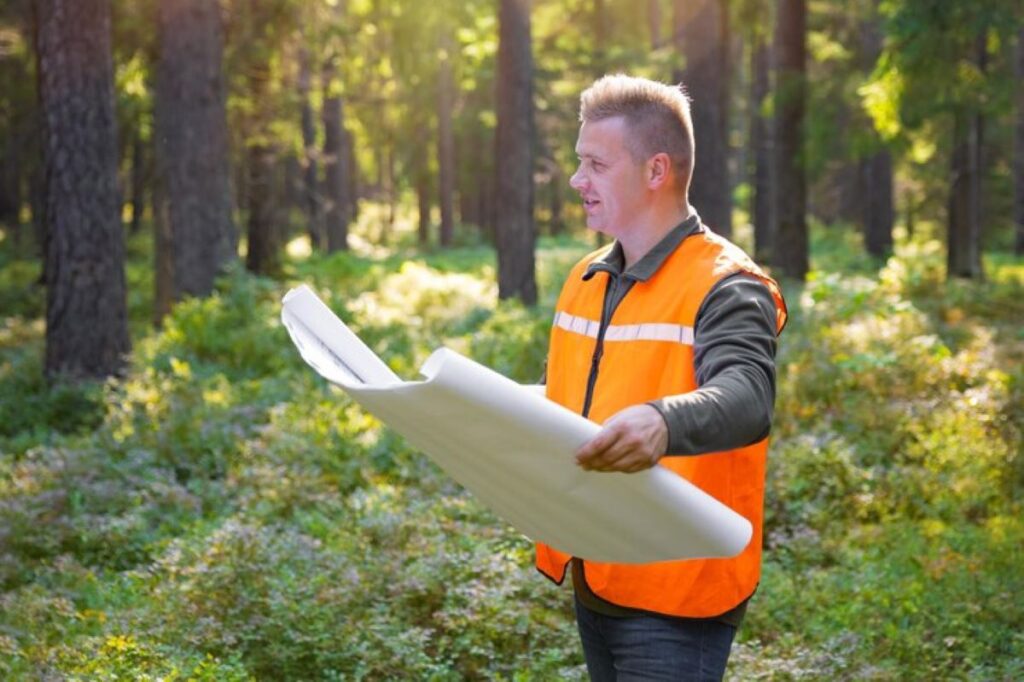Understanding Construction Surveys
Construction surveys are a critical component of large-scale developments, serving as the foundation upon which projects are built. These surveys provide essential data regarding the land, its features, and existing infrastructure, ensuring that all subsequent work is based on accurate information. Without a thorough survey, projects can face significant delays, cost overruns, and even legal complications.
At their core, construction survey involve measuring and mapping land to determine its boundaries, topography, and other significant characteristics. This information is crucial for architects, engineers, and contractors, as it influences design decisions and construction methods. In essence, a construction survey lays the groundwork for a successful project. The importance of these surveys cannot be overstated; they not only inform the physical layout of a building but also play a vital role in ensuring compliance with local regulations and zoning laws, which can vary significantly from one region to another. Understanding these legal frameworks is essential for avoiding costly fines and ensuring that the project proceeds smoothly.
The Role of Technology in Construction Surveys
Modern construction surveys have greatly benefited from advancements in technology. Tools such as GPS, laser scanning, and drones have revolutionised the way survey data is collected and analysed. These technologies enable surveyors to gather precise measurements quickly and efficiently, reducing the time required for traditional surveying methods. The use of drones, in particular, has opened up new possibilities for surveying hard-to-reach areas, allowing for comprehensive site assessments that were previously time-consuming and labour-intensive.
Moreover, the integration of Geographic Information Systems (GIS) allows for the visualisation and analysis of spatial data. This capability enhances decision-making processes, as stakeholders can easily interpret complex data sets and understand the implications for their projects. GIS technology also facilitates collaboration among various teams, enabling architects, engineers, and environmental specialists to share insights and work together more effectively. The result is a more cohesive approach to project planning and execution, which can significantly reduce the likelihood of errors and miscommunication during the construction phase.
Types of Surveys Conducted
Various types of surveys are conducted during the construction phase, each serving a specific purpose. Boundary surveys are essential for determining property lines, while topographic surveys provide detailed information about the land’s contours and features. Additionally, site surveys assess existing conditions, including utilities and environmental factors that may impact construction. These surveys are not only crucial for the initial phases of a project but also for ongoing monitoring throughout the construction process, ensuring that any changes in site conditions are promptly addressed.
Each of these surveys plays a vital role in the planning and execution of large-scale developments. By understanding the unique characteristics of the site, developers can make informed decisions that lead to more efficient and effective construction processes. Furthermore, environmental surveys are increasingly important in today’s context, as they assess the potential impact of construction on local ecosystems and biodiversity. This awareness not only helps in adhering to environmental regulations but also promotes sustainable practices that can benefit the community and the environment in the long run. As such, the integration of environmental considerations into construction surveys is becoming a standard practice, reflecting a broader commitment to responsible development in the industry.
The Benefits of Conducting a Construction Survey
Investing in a comprehensive construction survey can yield numerous benefits for large-scale developments. From minimising risks to enhancing project efficiency, the advantages are manifold. Understanding these benefits can help stakeholders appreciate the importance of prioritising surveys in their planning stages.
Risk Mitigation
One of the primary benefits of conducting a construction survey is the mitigation of risks. By identifying potential issues before construction begins, developers can address these challenges proactively. For instance, a survey may reveal unstable soil conditions or the presence of underground utilities that could pose problems during excavation.
By addressing these risks in advance, developers can avoid costly delays and ensure that the project stays on schedule. Furthermore, understanding the site’s characteristics allows for better planning of construction methods, reducing the likelihood of unforeseen complications arising during the build. This proactive approach not only safeguards the project timeline but also enhances the safety of workers on site, as potential hazards can be identified and managed before work commences. In addition, thorough surveys can help in assessing environmental impacts, ensuring compliance with regulations that protect local ecosystems.

Cost Efficiency
Cost efficiency is another significant advantage of conducting a construction survey. Accurate data allows for precise budgeting and resource allocation, minimising the chances of unexpected expenses. When developers have a clear understanding of the site, they can make informed decisions about materials, equipment, and labour, ultimately leading to more efficient use of resources.
Additionally, by preventing costly mistakes and delays, a well-executed survey can significantly enhance the overall profitability of a project. In large-scale developments where budgets are often tight, these savings can make a substantial difference. Moreover, the financial benefits extend beyond the immediate project; a reputation for thorough planning and execution can lead to future opportunities, as clients and investors are more likely to engage with developers who demonstrate a commitment to due diligence and cost management.
Enhanced Communication and Collaboration
A construction survey also fosters better communication and collaboration among project stakeholders. With a shared understanding of the site’s characteristics, architects, engineers, and contractors can work together more effectively. This collaboration is essential for ensuring that everyone is aligned with the project’s goals and objectives.
Furthermore, having accurate survey data readily available allows for smoother discussions and negotiations with local authorities and regulatory bodies. This transparency can expedite the approval process, helping to keep the project on track. In addition, regular updates and insights derived from ongoing surveys can facilitate a culture of open communication, where all parties feel empowered to share concerns and suggestions. This collaborative environment not only improves project outcomes but also fosters innovation, as diverse perspectives can lead to creative solutions that enhance the overall design and functionality of the development.
See Also : 5 Common Mistakes Avoided by Hiring a Professional Construction Surveyor
Legal and Regulatory Compliance
In the realm of large-scale developments, legal and regulatory compliance is paramount. Construction surveys play a crucial role in ensuring that projects adhere to local laws and regulations. Failure to comply can result in hefty fines, project delays, or even legal action, making it essential for developers to prioritise surveys.
Understanding Zoning Laws
Zoning laws dictate how land can be used and developed, and a construction survey provides the necessary information to navigate these regulations. By understanding the zoning requirements for a particular site, developers can ensure that their projects align with local guidelines, avoiding potential conflicts and complications.
Moreover, a thorough survey can help identify any restrictions or easements that may affect the development. This knowledge is crucial for making informed decisions and avoiding costly mistakes that could arise from non-compliance. For instance, developers might discover that certain areas are designated for public use or are subject to historical preservation laws, which could significantly alter their initial plans. Engaging with local planning authorities early in the process can also facilitate a smoother approval journey, as they can provide insights into community expectations and additional regulatory requirements that may not be immediately apparent.
Environmental Considerations
Environmental regulations are increasingly stringent, and construction surveys can help developers understand the ecological impact of their projects. By assessing factors such as soil quality, water drainage, and existing vegetation, surveys provide valuable insights that inform environmentally responsible design and construction practices.
In many cases, a survey may reveal the presence of protected species or habitats, necessitating additional considerations in the planning process. By addressing these environmental factors early on, developers can avoid potential legal challenges and demonstrate their commitment to sustainable practices. Furthermore, incorporating eco-friendly designs and materials not only aligns with regulatory requirements but can also enhance the marketability of a project. As consumers become more environmentally conscious, developments that prioritise sustainability are likely to attract greater interest and investment, making it a win-win situation for both developers and the community at large. Additionally, engaging with environmental consultants during the survey process can provide further expertise, ensuring that all ecological aspects are thoroughly evaluated and integrated into the project’s overall strategy.
Choosing the Right Surveying Firm
Experience and Expertise
Experience is a key factor in determining the quality of a surveying firm. A company with a proven track record in large-scale developments will have the knowledge and skills to navigate the complexities of such projects. Additionally, expertise in specific areas, such as environmental surveying or geotechnical analysis, can further enhance the firm’s capabilities.
It is advisable to review case studies and client testimonials to gauge the firm’s reputation and reliability. A well-established firm will have a portfolio of successful projects that demonstrate their proficiency and commitment to quality.

Technology and Tools
The use of advanced technology is essential for accurate surveying. A firm that invests in the latest tools and software will be better equipped to deliver precise data and analysis. This includes GPS technology, 3D modelling software, and drone surveying capabilities, all of which can significantly enhance the efficiency and accuracy of the survey process. You may like to get about evolution of surveying and surveying technology visit https://icsm.gov.au/education/fundamentals-land-ownership-land-boundaries-and-surveying/surveyors-and-surveying-.
Furthermore, a firm that embraces innovation is likely to stay ahead of industry trends, ensuring that clients benefit from the most up-to-date methodologies and practices.
Communication and Collaboration
Effective communication is vital for the success of any project. A surveying firm that prioritises clear and open communication will foster a collaborative environment, allowing for smoother interactions among all stakeholders. This is particularly important in large-scale developments, where multiple parties are involved.
During the selection process, it is beneficial to assess how well the firm communicates its findings and recommendations. A firm that provides detailed reports and is willing to engage in discussions about the survey results will contribute to a more successful project outcome.
Conclusion
In summary, the importance of a construction survey in large-scale developments cannot be overstated. These surveys provide essential data that informs design, mitigates risks, ensures legal compliance, and enhances overall project efficiency. By investing in a comprehensive survey, developers can lay the groundwork for successful projects that meet both their objectives and the needs of the community.
As technology continues to advance, the capabilities of construction surveys will only improve, further emphasising the need for developers to prioritise this critical step in the planning process. By choosing the right surveying firm and embracing the benefits of accurate data, stakeholders can navigate the complexities of large-scale developments with confidence.